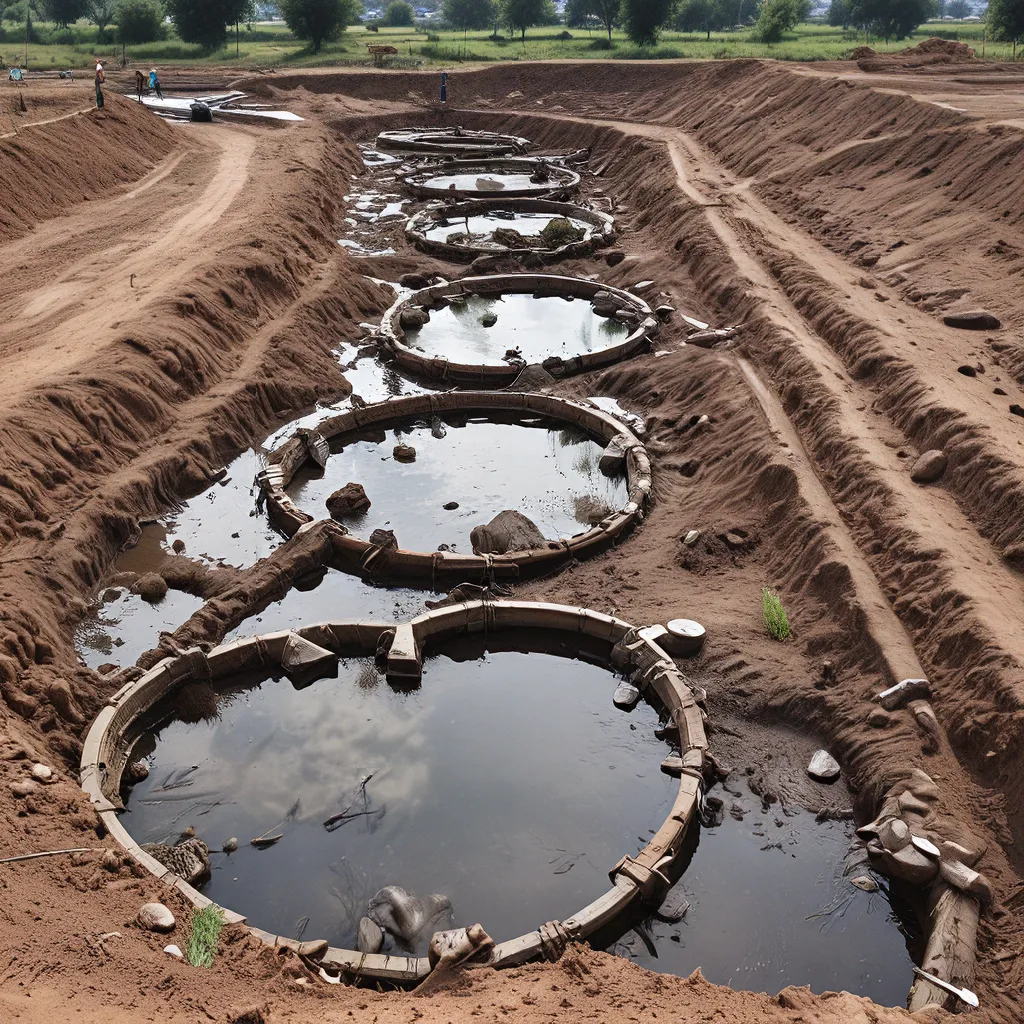
Revolutionizing Wastewater Treatment: A Sustainable Approach
I’ve always been fascinated by the intricate world of wastewater treatment – how we can transform the seemingly unusable into a valuable resource. As someone who’s deeply passionate about sustainability, I’ve been keeping a close eye on the emerging trends in this industry, and one that’s caught my attention is the rise of the sharing economy and how it’s shaping the future of wastewater management.
You see, the traditional model of wastewater treatment has often been centralized, with large-scale facilities handling the bulk of the processing. But in recent years, we’ve seen a shift towards a more decentralized approach, where smaller, community-based systems are gaining traction. And this is where the sharing economy comes into play.
Decentralized Wastewater Treatment: A Paradigm Shift
The sharing economy, with its emphasis on collaborative consumption and resource optimization, has found a natural home in the world of wastewater treatment. Imagine a scenario where neighborhood-level wastewater treatment plants are linked together, sharing resources and expertise to create a more efficient, cost-effective, and environmentally-friendly system.
This is precisely what researchers have been exploring in their studies. According to a recent paper published in the Journal of Environmental Management, the decentralized approach to wastewater treatment can offer a range of benefits, including:
Reduced Infrastructure Costs: By leveraging shared resources and distributed systems, the upfront investment required for wastewater treatment infrastructure can be significantly lower than traditional centralized models.
Improved Resource Recovery: Decentralized systems often enable more efficient recovery and reuse of valuable resources, such as water, nutrients, and energy, contributing to a more circular and sustainable approach.
Increased Resilience: Smaller, interconnected systems are less vulnerable to large-scale disruptions, ensuring a more reliable and adaptable wastewater management network.
Enhanced Community Engagement: Decentralized models encourage local involvement and ownership, fostering a stronger sense of stewardship and environmental awareness within the community.
In essence, this paradigm shift is transforming the way we think about wastewater treatment, transitioning from a linear, resource-intensive process to a more circular and collaborative one. And as the sharing economy continues to evolve, I can’t help but wonder what other innovative service models might emerge to further enhance the sustainability of our wastewater management systems.
The Sharing Economy in Action: Case Studies and Emerging Trends
To get a better understanding of how the sharing economy is shaping the future of wastewater treatment, let’s explore some real-world examples and emerging trends.
Neighborhood-Scale Wastewater Treatment Plants
In many parts of the world, community-based wastewater treatment plants are springing up, leveraging the principles of the sharing economy. These decentralized facilities are designed to serve a specific neighborhood or district, often using advanced technologies like membrane bioreactors or constructed wetlands to treat the wastewater.
One fascinating case study comes from a small town in Northern Europe, where a group of residents came together to establish their own wastewater treatment cooperative. By pooling their resources and expertise, they were able to create a highly efficient system that not only met their community’s needs but also generated revenue by selling the recovered resources, such as reclaimed water and nutrient-rich sludge, to local farmers.
This type of community-driven approach has the potential to inspire similar initiatives around the world, fostering a sense of shared responsibility and environmental stewardship.
Wastewater Treatment as a Service
As the sharing economy continues to disrupt traditional industries, we’re also seeing the emergence of wastewater treatment as a service (WTaaS) models. In this scenario, specialized providers offer comprehensive wastewater management solutions to businesses, municipalities, or even individual households, rather than the traditional approach of building and operating their own treatment facilities.
These service-based models leverage the economies of scale and technological expertise of the providers, allowing clients to focus on their core operations while benefiting from the cost-effectiveness and environmental sustainability of the wastewater treatment services.
A fascinating example of this can be found in a study published in the Journal of Cleaner Production, which explored the adoption of a WTaaS model in an industrial park. By outsourcing their wastewater treatment to a specialized provider, the companies in the park were able to reduce their environmental footprint, lower their operational costs, and free up valuable resources to focus on their primary business activities.
The Future of Wastewater Treatment: Embracing the Sharing Economy
As I delve deeper into the intersection of the sharing economy and wastewater treatment, I can’t help but feel a sense of excitement and optimism. The potential for innovative service models, resource-sharing, and community-driven initiatives is truly remarkable.
One area that’s particularly intriguing is the role of digital technologies in facilitating these new wastewater management approaches. Blockchain, for instance, could enable secure and transparent peer-to-peer transactions of recovered resources, while IoT (Internet of Things) sensors could provide real-time monitoring and optimization of decentralized treatment systems.
Furthermore, I believe that the integration of renewable energy sources, such as solar power and biogas, could further enhance the sustainability of wastewater treatment operations, making them more self-sufficient and environmentally friendly.
As I consider the future of this industry, I’m reminded of the wise words of one of the researchers I’ve been following: “The sharing economy in wastewater treatment is not just about efficiency and cost-savings; it’s about rethinking our relationship with water and embracing a more holistic, collaborative approach to resource management.”
And that, my friends, is precisely what I’m looking forward to seeing unfold in the years to come. Who knows, perhaps one day we’ll all be part of a neighborhood-level wastewater cooperative, sharing resources and working together to create a more sustainable future. After all, when it comes to wastewater treatment, the possibilities are as endless as the flow of water itself.
So, if you’re feeling inspired and want to explore the world of wastewater treatment services, I encourage you to keep an eye on the latest developments in this rapidly evolving field. It’s an exciting time to be a part of this journey towards a more sustainable, collaborative, and resource-efficient future.